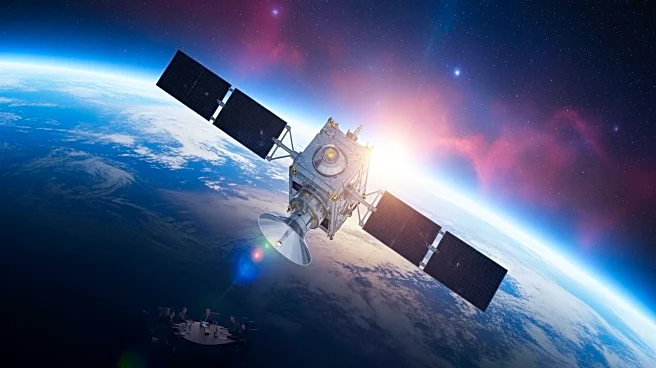What's Happening?
Airbus, Leonardo, and Thales have signed a Memorandum of Understanding to merge their space businesses into a single entity. This strategic move aims to enhance their competitiveness in the global market,
particularly against major players like SpaceX. Under the agreement, Airbus will hold a 35% stake in the new venture, while Leonardo and Thales will each hold 32.5%. The merger is expected to be operational by 2027, employing approximately 25,000 workers and generating an annual revenue of around €6.5 billion. Despite the merger's potential impact, venture capital firms believe that European startups will continue to thrive, as the merger will take time to integrate and may not immediately affect the venture-funded space economy.
Why It's Important?
The merger of these three major European space companies could significantly alter the landscape of the European space industry. While the consolidation aims to create a competitive force against global giants like SpaceX, there is skepticism about its ability to achieve this goal. The merger could influence government and institutional procurement decisions, potentially favoring larger players over startups. However, this consolidation also presents opportunities for startups to fill gaps in the market, especially if European governments embrace open competition. The merger's success will depend on regulatory approval and its ability to foster innovation within the European space ecosystem.
What's Next?
The new venture faces several challenges, including convincing European regulators that the merger does not constitute anti-competitive behavior. The companies must also integrate their operations effectively to realize the merger's potential benefits. As the merger progresses, the European startup community will need to adapt to the changing market dynamics. The success of the merger could lead to increased collaboration between startups and larger companies, fostering innovation and growth within the industry. Additionally, the merger's impact on defense spending and dual-use technologies remains to be seen, as national governments may prefer working with agile startups.
Beyond the Headlines
The merger raises questions about the future of innovation in the European space industry. While consolidation can streamline operations and reduce costs, it may also stifle creativity and limit opportunities for smaller companies. The success of the merger will depend on its ability to balance efficiency with fostering a healthy ecosystem for startups. The merger could also influence the perception of European space capabilities on the global stage, potentially attracting more investment and collaboration opportunities. As the industry evolves, stakeholders must consider the ethical and cultural implications of prioritizing large-scale operations over nurturing innovative startups.









